It's the night before the big test and you're sitting on your bedroom floor, books and notes sprawled all around you as you flounder, not knowing where to start or how to best cram all of this into your brain.
Been there? You're not alone!
Learn about some of those ineffective habits, more effective habits to replace them with, and how to make that transition away from bad study habits!

The Bad Study Habits
Everyone is different and you might find that some of these work for you sometimes, but in general...these are considered some of the more common study pitfalls. Do you have any of these bad study habits?
Cramming
Procrastination
Studying without a plan or goal
Multi-tasking
Studying in bed
Not asking for help when you need it
You might also have some less effective strategies, which may include approaches like:
Highlighting
Re-reading your notes/textbook
Brute force memorization
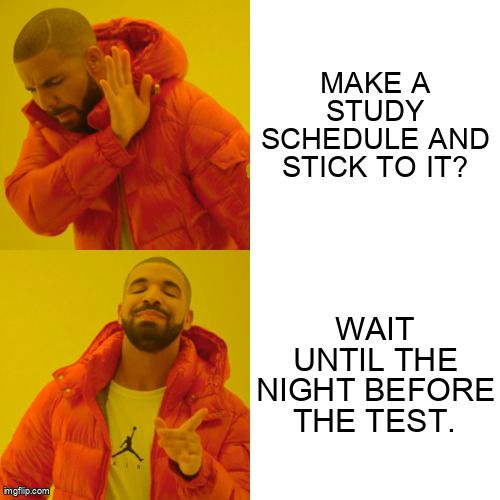
Did you know?
Good Study Habit #1: Study Consistently

Instead of bad study habits like:
Procrastinating and cramming the night before the test
Try this!
Plan backward from the test date or assignment deadline
Pick content for each study session
Set goals for each study session
Space out your learning and practice
Gamify your learning to improve motivation
Planning backward from a test or assignment deadline might look like this:
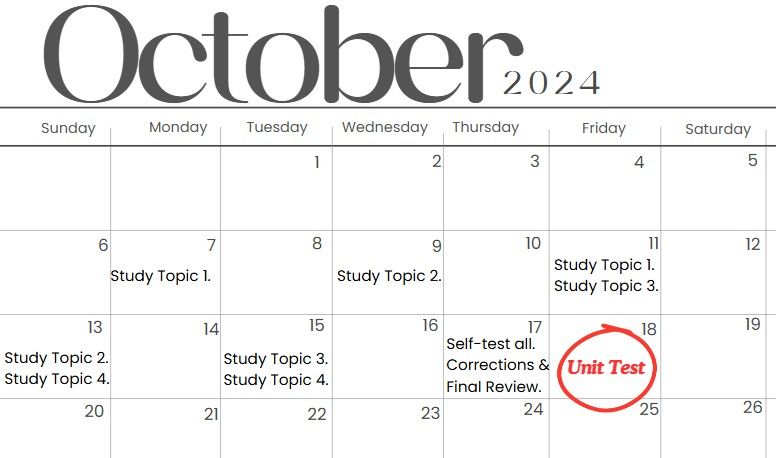 To hear an audio version of the information in the image above, click the play button on the audio player below:
To hear an audio version of the information in the image above, click the play button on the audio player below:
Spacing out your study sessions (also called "distributive practice") is effective because:
The delay gives your brain time to absorb the new information
It allows you to practice pulling the information out of your memory when needed.
Studying and switching between related topics and materials is called interleaving. It forces your brain to distinguish between different concepts which strengthens your memory and your understanding.
Learn more here: How to use interleaving for deeper learning
Gamify your learning to make it more engaging and fun when your motivation is lagging! You can challenge yourself or friends to meet certain milestones, compete in online quiz showdowns, or work as a team to tackle a hard problem.
Like in gaming, failures and roadblocks give you information so that you can try again!
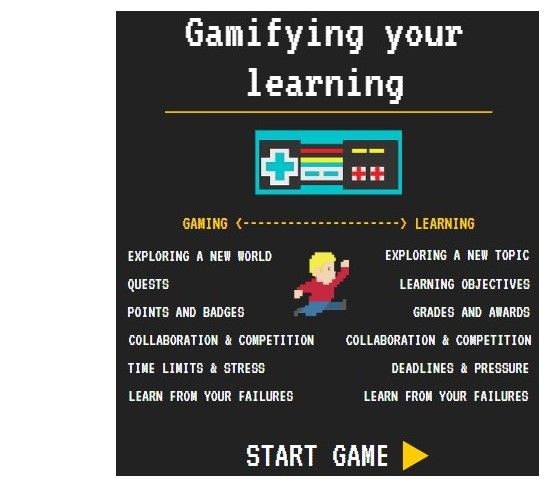 Image adapted from Academic Tech at the University of Chicago
Image adapted from Academic Tech at the University of Chicago
To hear an audio version of the information in the image above, click the play button on the audio player below:
Did you know?
Good Study Habit #2: Study Quietly
This doesn't necessarily mean silence...but it means whatever is quiet for your brain. You should be able to focus solely on the task at hand!
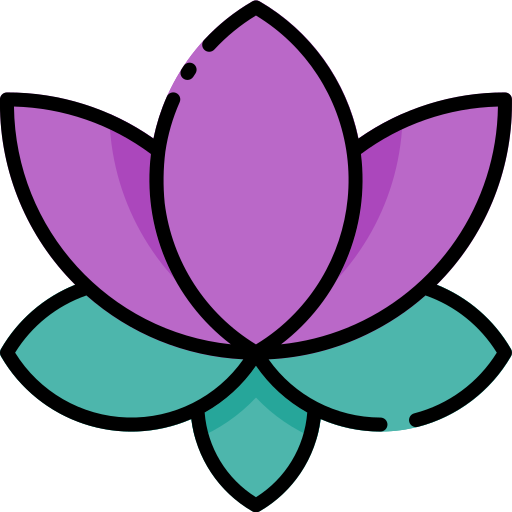
Instead of bad study habits like:
Multitasking
Studying in distracting environments
Try this!
Focus only on your study task — don't try to fold your laundry at the same time
Reduce distractions, whatever those are for you!
Use noise-cancelling headphones or music you don't find distracting
I know it's comfy, but don't study in bed!
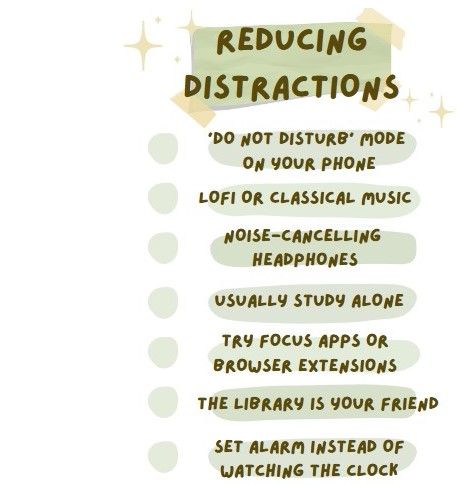 To hear an audio version of the information in the image above, click the play button on the audio player below:
To hear an audio version of the information in the image above, click the play button on the audio player below:
Focusing on studying is important because science has shown that multi-tasking is ineffective. You're actually rapidly shifting back and forth between tasks and this increases cognitive load (how many things your brain has to juggle), making it harder for you to learn and remember!
You associate a lot of things with your bed, but learning about ionic bonding usually isn't one of them. If you keep your bed and studying separate, your studying will be more productive and your bed more relaxing.
Did you know?
Subscribe for more quick bites of learning delivered to your inbox.
Unsubscribe anytime. No spam. 🙂
Good Study Habit #3: Study Effectively
Your ability to perform well depends on how you choose to learn — and that's a skill you can develop! The video below explains how your learning process can affect your memory:
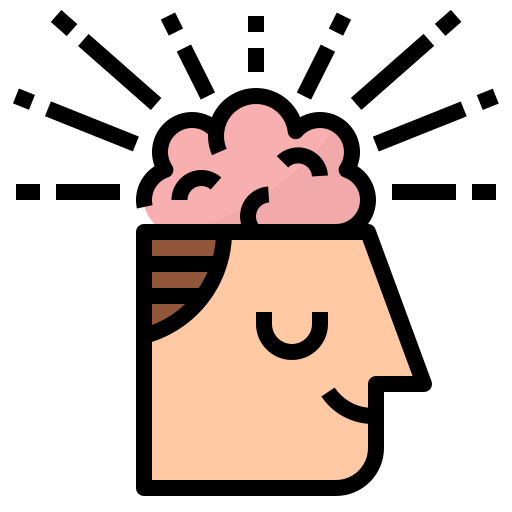
Instead of bad study habits like:
Re-reading
Highlighting
Underlining
Try this!
Explain why something is true or false, or teach the concept to others
Test yourself
Practice doing what you'll be tested on
Monitor your own understanding and what strategies are working for you
Learn through different sources and media
Self-testing, or retrieval practice, is one of your best tools. It strengthens your memory and helps you identify what you don't understand well.
If you'll need to write an essay on a final exam, don't wait until the exam to practice writing essays. Use the results of your self-test to guide your studying moving forward!
Self-regulated learning is about keeping tabs on whether you are learning and how you are learning. Being aware that something isn't working for you is essential to be able to change it!
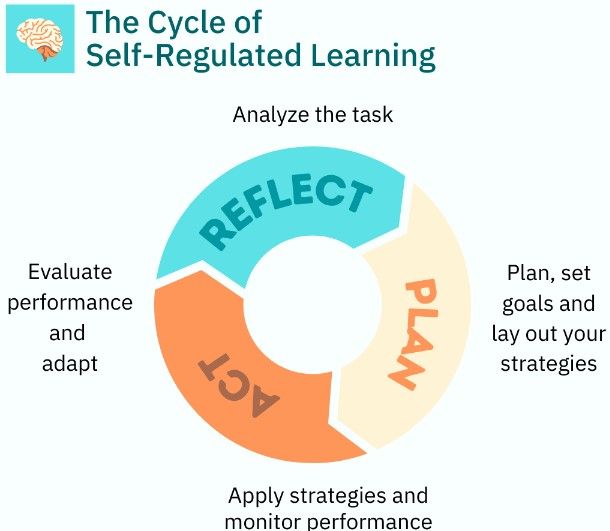
Image courtesy of eCampus Ontario
For more information on self regulated Learning, check out this Byte on developing self-regulated learning strategies.
Good Study Habit #4: Study Healthily
Instead of bad study habits like:
All-nighters, coffee, and stress
Try this!
Develop a positive (growth) mindset
Exercise
Water or tea
Meditation or relaxation
Remember: you belong here
Learning is influenced by your attitude, mental and physical state, and choices you make about how you spend your time.
Having a growth mindset has a real and positive impact on your ability to persevere when you're struggling with learning something. Instead of saying "I can't do trigonometry", try saying "I can't do trigonometry YET". This simple shift signals to your brain that you're committed to learning this!
To avoid becoming overwhelmed make sure to take breaks, exercise, meditate, get outdoors, or spend time with friends. Engaging in good study habits includes taking care of your mind and body!
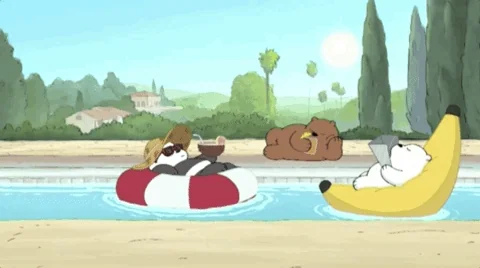
Quiz
You've registered for a difficult history class and are determined to start off using the best strategies for academic success. What are some you might try? Choose all that apply:
How to Change Bad Study Habits
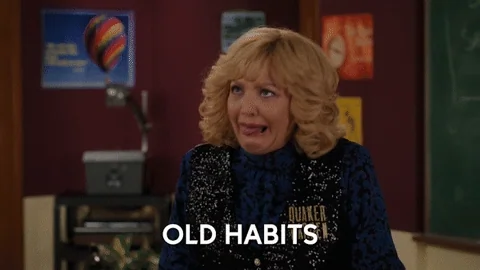
Okay, that was a lot, right? Don't worry, you don't have to try everything I suggested!
Pick the bad habit giving you the most grief and address that first, OR pick a few small changes that you can make right away. 😎
Be specific about what you will do, not what you won't do. 🤌
Aim for 30 days and track your progress! 📅
Give yourself a visual cue (e.g., sticky note on the mirror, alert on your phone). ⚠️
Reward your successes to reinforce them. 🍬
Remind yourself why you're doing this!🫵
Take Action
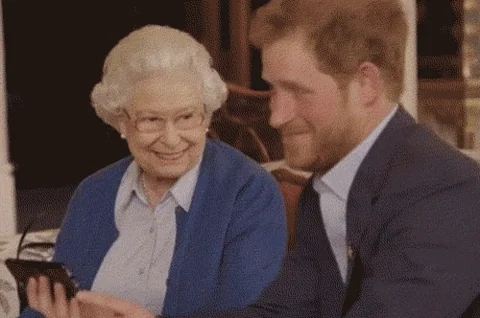
Turn those bad study habits into effective study strategies!
Your feedback matters to us.
This Byte helped me better understand the topic.
